CUPRA Terramar vs Volvo XC60 - Differences and prices compared
Compare performance (272 HP vs 455 HP), boot space and price (36900 £ vs 49200 £ ) at a glance. Find out which car is the better choice for you – CUPRA Terramar or Volvo XC60?
Costs and Efficiency:
When it comes to price and running costs, the biggest differences usually appear. This is often where you see which car fits your budget better in the long run.
CUPRA Terramar has a noticeable advantage in terms of price – it starts at 36900 £ , while the Volvo XC60 costs 49200 £ . That’s a price difference of around 12317 £.
Fuel consumption also shows a difference: CUPRA Terramar manages with 1.60 L and is therefore convincingly more efficient than the Volvo XC60 with 2.80 L. The difference is about 1.20 L per 100 km.
As for electric range, the CUPRA Terramar performs distinct better – achieving up to 118 km, about 36 km more than the Volvo XC60.
Engine and Performance:
Power, torque and acceleration are the classic benchmarks for car enthusiasts – and here, some clear differences start to show.
When it comes to engine power, the Volvo XC60 has a significantly edge – offering 455 HP compared to 272 HP. That’s roughly 183 HP more horsepower.
In acceleration from 0 to 100 km/h, the Volvo XC60 is clearly perceptible quicker – completing the sprint in 4.90 s, while the CUPRA Terramar takes 5.90 s. That’s about 1 s faster.
In terms of top speed, the CUPRA Terramar performs noticeable better – reaching 243 km/h, while the Volvo XC60 tops out at 180 km/h. The difference is around 63 km/h.
There’s also a difference in torque: Volvo XC60 pulls clearly stronger with 709 Nm compared to 400 Nm. That’s about 309 Nm difference.
Space and Everyday Use:
Cabin size, boot volume and payload all play a role in everyday practicality. Here, comfort and flexibility make the difference.
Both vehicles offer seating for 5 people.
In curb weight, CUPRA Terramar is somewhat lighter – 1638 kg compared to 1900 kg. The difference is around 262 kg.
In terms of boot space, the CUPRA Terramar offers a bit more room – 540 L compared to 483 L. That’s a difference of about 57 L.
When it comes to payload, Volvo XC60 slight takes the win – 550 kg compared to 542 kg. That’s a difference of about 8 kg.
Who wins the race in the data check?
The CUPRA Terramar is far ahead overall in the objective data comparison.
This result only shows which model scores more points on paper – not which of the two cars feels right for you.
Costs and Consumption
View detailed analysis
Engine and Performance
View detailed analysis
Dimensions and Body
View detailed analysis
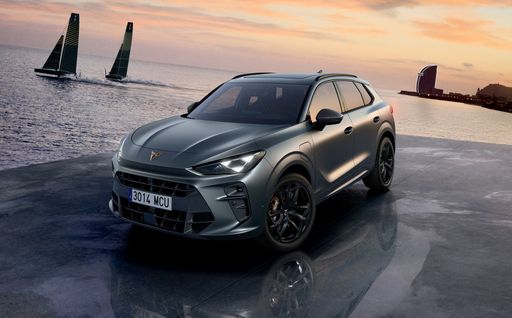
CUPRA Terramar
CUPRA Terramar
The CUPRA Terramar is a sharply styled, sporty SUV that brings athletic handling and bold design to buyers who want performance with everyday usability. Inside, premium finishes meet driver-focused flair and family-friendly practicality, making it a tempting pick for anyone who wants thrills without turning their daily routine into a chore.
details
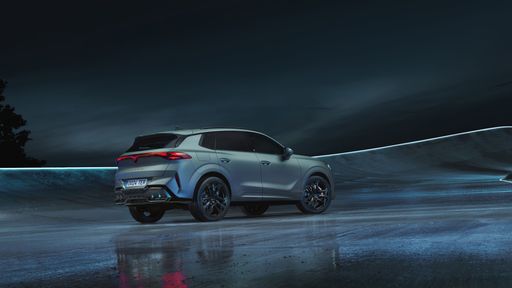
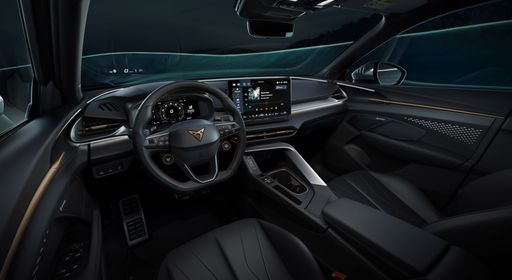
Volvo XC60
The Volvo XC60 blends Scandinavian calm with confident presence, offering a cabin that feels plush without shouting for attention. It’s a smart pick for buyers after a composed ride, clever practicality and thoughtful safety touches — it even makes running the family shuttle feel almost serene, which is a small miracle.
details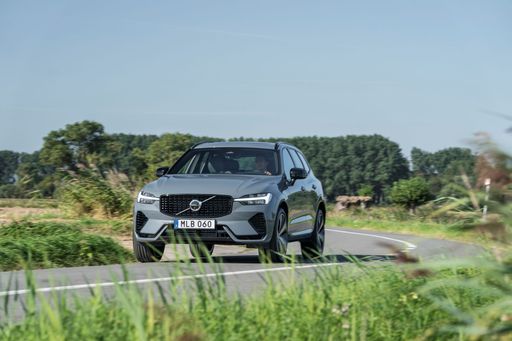
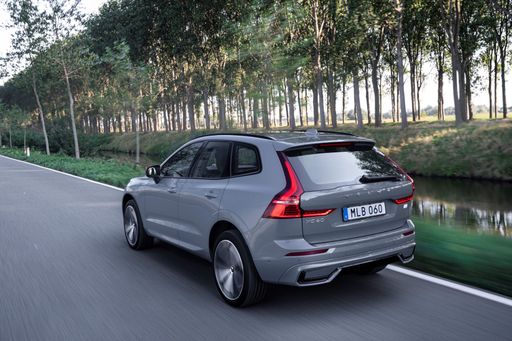
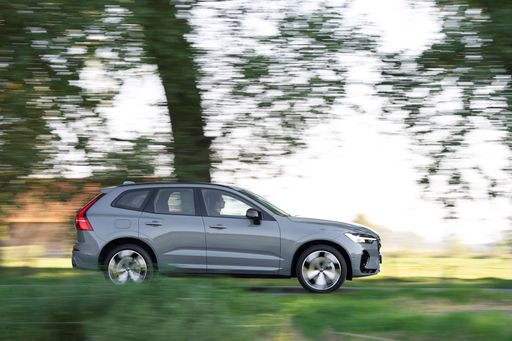
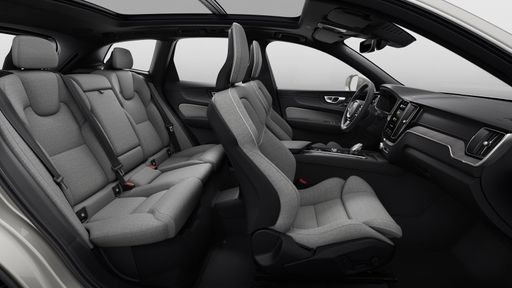
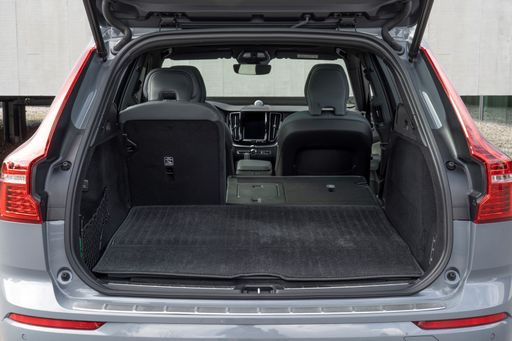
Costs and Consumption |
|
|---|---|
|
Price
36900 - 50600 £
|
Price
49200 - 75100 £
|
|
Consumption L/100km
1.6 - 8.4 L
|
Consumption L/100km
2.8 - 7.5 L
|
|
Consumption kWh/100km
-
|
Consumption kWh/100km
-
|
|
Electric Range
118 km
|
Electric Range
74 - 82 km
|
|
Battery Capacity
-
|
Battery Capacity
14.70 kWh
|
|
co2
36 - 191 g/km
|
co2
64 - 169 g/km
|
|
Fuel tank capacity
55 - 60 L
|
Fuel tank capacity
71 L
|
Dimensions and Body |
|
|---|---|
|
Body Type
SUV
|
Body Type
SUV
|
|
Seats
5
|
Seats
5
|
|
Doors
5
|
Doors
5
|
|
Curb weight
1638 - 1904 kg
|
Curb weight
1900 - 2150 kg
|
|
Trunk capacity
450 - 540 L
|
Trunk capacity
468 - 483 L
|
|
Length
4519 mm
|
Length
4708 mm
|
|
Width
1869 mm
|
Width
1902 mm
|
|
Height
1586 mm
|
Height
1651 - 1655 mm
|
|
Max trunk capacity
-
|
Max trunk capacity
1528 - 1543 L
|
|
Payload
512 - 542 kg
|
Payload
510 - 550 kg
|
Engine and Performance |
|
|---|---|
|
Engine Type
Petrol MHEV, Petrol, Plugin Hybrid
|
Engine Type
Petrol MHEV, Plugin Hybrid
|
|
Transmission
Automatic
|
Transmission
Automatic
|
|
Transmission Detail
Dual-Clutch Automatic
|
Transmission Detail
Automatic Gearbox
|
|
Drive Type
Front-Wheel Drive, All-Wheel Drive
|
Drive Type
All-Wheel Drive
|
|
Power HP
150 - 272 HP
|
Power HP
250 - 455 HP
|
|
Acceleration 0-100km/h
5.9 - 9.3 s
|
Acceleration 0-100km/h
4.9 - 6.9 s
|
|
Max Speed
205 - 243 km/h
|
Max Speed
180 km/h
|
|
Torque
250 - 400 Nm
|
Torque
350 - 709 Nm
|
|
Number of Cylinders
4
|
Number of Cylinders
4
|
|
Power kW
110 - 200 kW
|
Power kW
184 - 335 kW
|
|
Engine capacity
1498 - 1984 cm3
|
Engine capacity
1969 cm3
|
General |
|
|---|---|
|
Model Year
2024 - 2025
|
Model Year
2025
|
|
CO2 Efficiency Class
E, G, F, B
|
CO2 Efficiency Class
F, B
|
|
Brand
CUPRA
|
Brand
Volvo
|
What drivetrain options does the CUPRA Terramar have?
The CUPRA Terramar is available as Front-Wheel Drive or All-Wheel Drive.




